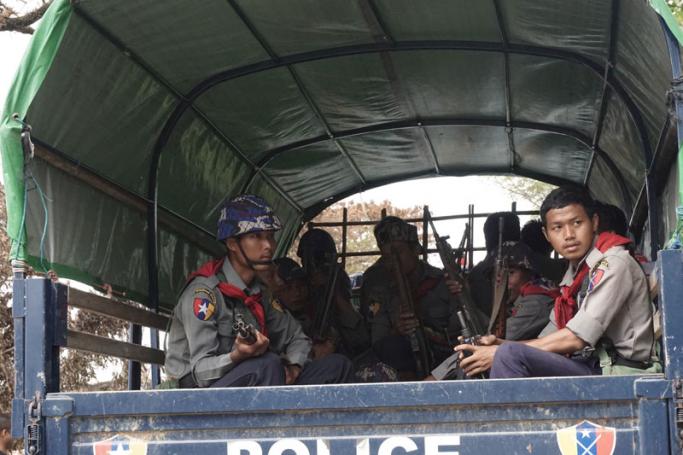The International Crisis Group (ICG) has said sanctions against Myanmar seems inevitable but won't work.
The International Crisis Group is a Western independent organisation working to prevent wars and shape policies that will build a more peaceful world.
In its latest report the ICG has said: "Given the strong perception that the diplomatic channel is not producing results, and with public views hardening in many countries in the West and the Muslim world, the imposition of sanctions by Europe and the U.S. seems inevitable.''
"Over time, the drumbeat for holding those most responsible criminally accountable will also likely increase."
But it issued a stern warning that sanctions may indeed be counter-productive.
"Policymakers should be under no illusions -- sanctions are very unlikely to prompt positive change in Myanmar," the report said.
"Indeed, – depending on specifics - they could make matters worse. Unlike in the past, there is no domestic debate on different policy approaches that sanctions might be thought to influence."
The report said that the most likely effect of sanctions would be "to push the government, military and population even closer together and to reinforce current narratives in Myanmar that the West is a fickle friend and unreliable partner."
It says that government leaders have explicitly warned that criticism and punitive actions from the West will "only push them closer to China."
The ICG says that the " "ARSA may still be reeling from the enormity of the crisis that its attacks triggered;" pointing out that " no videos of Ata Ullah have been released since 28 August 2017."
But it observed that the ARSA appears " determined to regroup and remain relevant."
"Given how ARSA is organised, this will require a significant departure from its previous way of operating. Rather than basing uniformed, armed militants in camps, ARSA has to date organised cells within hundreds of villages, led by a network of respected local leaders, including young mullahs. It attempted to incite a general uprising among the population, overrunning police posts using overwhelming numbers of ordinary villagers with farm tools, rather than military might. "
But the ICG report pointed out that "operating under cover of the civilian population is no longer possible given that few Rohingya villages remain. Most of the group’s organisers and fighters are now in the Bangladesh camps, having fled along with the rest of the population."
"The group may thus shift to cross-border attacks, which would require different training, access to weapons as well as operating space in Bangladesh. Acquiring that space might now be more realistic given Bangladesh’s anger and frustration towards Myanmar. If ARSA launches cross-border attacks, it could aim at opportunistic security targets in northern Rakhine or turn to attacking any non-Muslim villagers resettled on Rohingya lands, an easier target."
That may be exactly what the ARSA is aiming at -- furthering the communal divide. But the ICG report discounts the tough policy of the Hasina government and its determination to root out the ARSA, even as it keeps the door open for Rohingya refugees.
Bangladesh intelligence has had enough intelligence on ARSA's links with its jihadi group JMB and the Indian Mujahideen and the Lashkar-e-Tayyaba in Pakistan.
PM Hasina's political advisor, H T Imam, told Mizzima after the August attacks that the "ARSA is the common enemy of Myanmar, Bangladesh and India" and Dhaka offered joint military operations with Myanmar security forces against the ARSA.
Though Islamist elements in the Bangladesh army and intelligence agencies may have sympathy for ARSA, the Hasina government is in no mood to pamper them, though the BNP-Jamaat e Islami would like to back the ARSA.
Hasina has recently blamed Bangladesh's first military ruler General Ziaur Rahman for fuelling the Rohingya insurgency.
You are viewing the old site.
Please update your bookmark to https://eng.mizzima.com.
Mizzima Weekly Magazine Issue...
14 December 2023
Spring Revolution Daily News f...
13 December 2023
New UK Burma sanctions welcome...
13 December 2023
Spring Revolution Daily News f...
12 December 2023
Spring Revolution Daily News f...
11 December 2023
Spring Revolution Daily News f...
08 December 2023
Spring Revolution Daily News f...
07 December 2023
Diaspora journalists increasin...
07 December 2023
Russia's FM supports Myanmar's junta in its efforts to 'stabilise' the country












